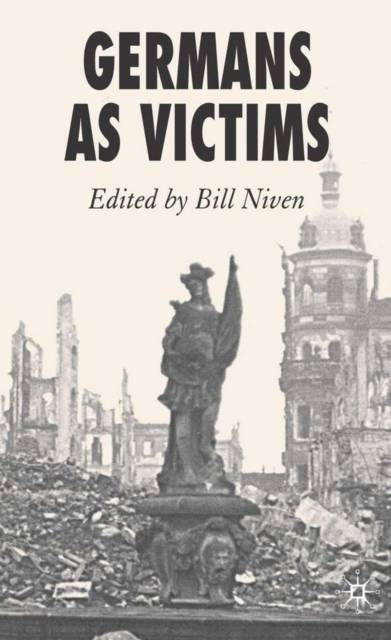
Door een staking bij bpost kan je online bestelling op dit moment iets langer onderweg zijn dan voorzien. Dringend iets nodig? Onze winkels ontvangen jou met open armen!
- Afhalen na 1 uur in een winkel met voorraad
- Gratis thuislevering in België vanaf € 30
- Ruim aanbod met 7 miljoen producten
Door een staking bij bpost kan je online bestelling op dit moment iets langer onderweg zijn dan voorzien. Dringend iets nodig? Onze winkels ontvangen jou met open armen!
- Afhalen na 1 uur in een winkel met voorraad
- Gratis thuislevering in België vanaf € 30
- Ruim aanbod met 7 miljoen producten
Zoeken
€ 43,45
+ 86 punten
Omschrijving
Since the 1960s and certainly the 1980s, Germans have been confronting the Nazi past and the legacy of German perpetration. However, over recent years, Germany has become increasingly preoccupied with German suffering during the war and the post-war period. Arguably, it is no longer the Holocaust that takes centre-stage in the contemporary German culture of memory but the trauma caused by Allied bombing of German cities, and by the expulsion of millions of Germans from eastern Europe at the end of the war.
This thought-provoking and lively collection of essays, by a team of leading scholars in the field, explores current memory trends in Germany. What has triggered this preoccupation with German suffering? How dangerous is it? Is it really new, or have the Germans always tended to empathise more with their own losses than with Nazi victims? Together these essays are an invaluable resource for students and teachers, and are essential reading for all with an interest in how Germans, in the new millennium, are facing up to their past.Specificaties
Betrokkenen
- Auteur(s):
- Uitgeverij:
Inhoud
- Aantal bladzijden:
- 304
- Taal:
- Engels
Eigenschappen
- Productcode (EAN):
- 9781403990426
- Verschijningsdatum:
- 1/11/2006
- Uitvoering:
- Hardcover
- Formaat:
- Genaaid
- Afmetingen:
- 163 mm x 217 mm
- Gewicht:
- 476 g

Alleen bij Standaard Boekhandel
+ 86 punten op je klantenkaart van Standaard Boekhandel
Beoordelingen
We publiceren alleen reviews die voldoen aan de voorwaarden voor reviews. Bekijk onze voorwaarden voor reviews.











